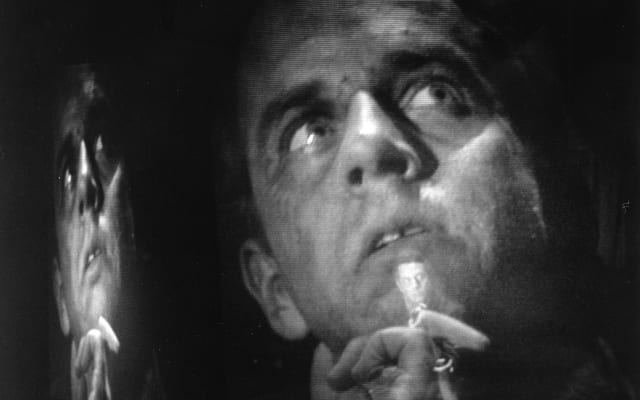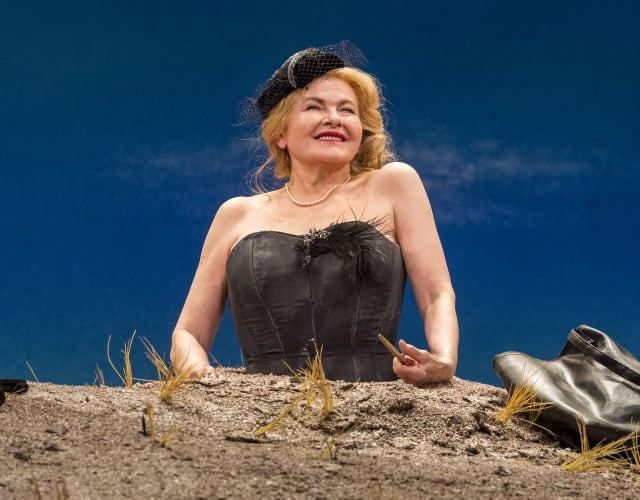Samuel Beckett at Center Theatre Group

Some of Samuel Beckett’s most renowned interpreters have appeared on our stages in a number of his iconic works. As Bill Irwin takes the stage of the Kirk Douglas Theatre September 13 – October 27, 2019 in On Beckett, here is a look back at the history of our mainstage Beckett productions.
1972
Irish actor Jack MacGowran, who was one of Beckett's favorite actors (and a drinking buddy) performed a solo show at the Taper—adapted “with the approval and advice of Samuel Beckett”—titled The Works of Beckett.

1990
The Taper hosted 50/60 Vision, a festival of “plays and playwrights that changed the theatre!” and included four works by Beckett. Charlotte Rae played the legendary role of Winnie in Happy Days: “Because of her association with TV sitcom, casting Rae in the role was risky, but it was a brilliant stroke,” according to the Los Angeles Times.

“It’s a fun play; it’s strange, avant-garde stuff,” Teri Garr told Orange Coast Magazine of Play, which she appeared in alongside John Nesci and Gloria Mann. “The lights come up on it and people laugh, because they can’t believe there’s three heads in an urn.”
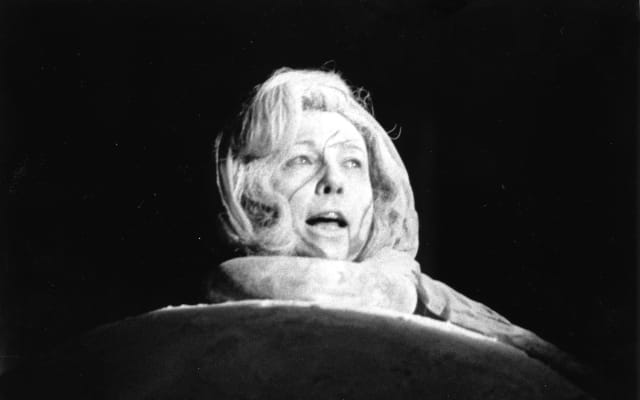
Nesci also appeared in 50/60 Vision’s Krapp’s Last Tape, a one-man, one-act monologue. “Nesci plays Krapp as a booming King Lear, sneaking bananas and stealing nips from a bottle he keeps under lock and key,” wrote the Los Angeles Times of his performance.

Variety's review of Eh, Joe lauded Peter Brosius’ direction and the performances: “Paton’s eerily accusing voice and Campbell’s taut visage make a startling effective combination.” Originally written for TV, the play features a mute Ron Campbell doing battle in his mind with a memory of a former lover’s suicide (given voice by Angela Paton).
2012
Our celebrated production of Waiting for Godot featured Alan Mandell and Barry McGovern, both of whom have long histories performing Beckett’s work. “Mandell brings a childlike wonder to his role,” said the Los Angeles Times, while “McGovern’s performance readily captures the tone of Beckett’s humor.”

2012
For Krapp’s Last Tape at the Douglas, John Hurt's performance was called “career-defining” by Backstage. Krapp “is one of the loneliest in classical drama, and Hurt—his head twitching occasionally to see whether somebody might finally be coming—makes us feel every pang.”
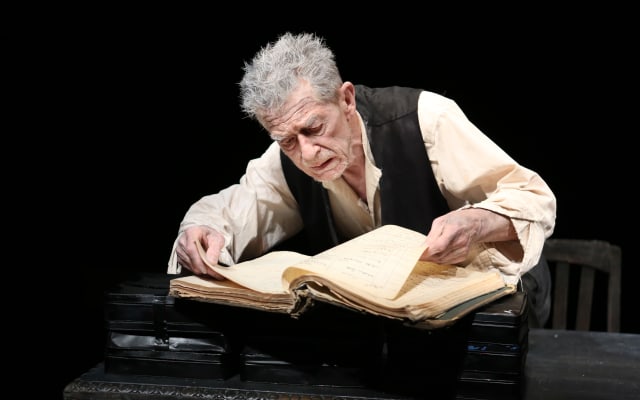
2014
Barry McGovern returned to Center Theatre Group with his solo show I’ll Go On—based on three Beckett novels—at the Douglas. Timeless and profound, the performance was applauded by The Hollywood Reporter: “McGovern has been performing this piece nigh onto 30 years, yet in his fulminating glory he seems utterly fresh, like an improvising musician who never plays a tune the same way twice.”

2016
Barry McGovern, Charlotte Rae, and Alan Mandell returned to our stages alongside James Greene in Endgame at the Douglas, which Mandell also directed. “Mandell and McGovern play off each other naturally, never overdoing the pathos or shortchanging the comedy,” raved the Los Angeles Times. “Their voices are so harmonious that at several points I had the impression of two master violinists lifting each other to sublime heights without being aware of anything but the music.”
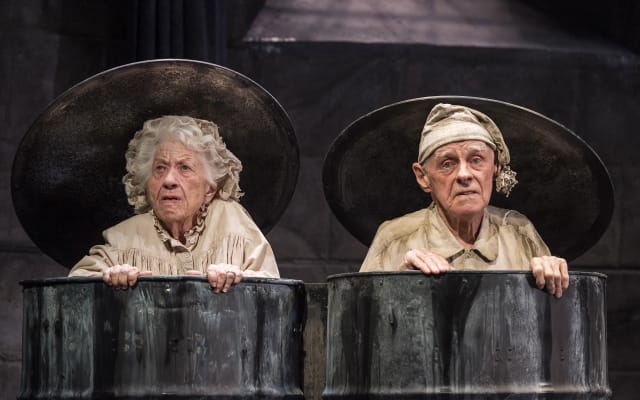
2019
Dianne Wiest became Winnie in Happy Days at the Taper—a role she wanted to play “over and over again” because “nothing comes near it,” she told Charles McNulty of the Los Angeles Times. Wiest's performance was described as “enthralling” by Los Angeles Daily News: “She has flawless comedic timing and a voice she plies like a musical instrument to make us listen to every note.”
